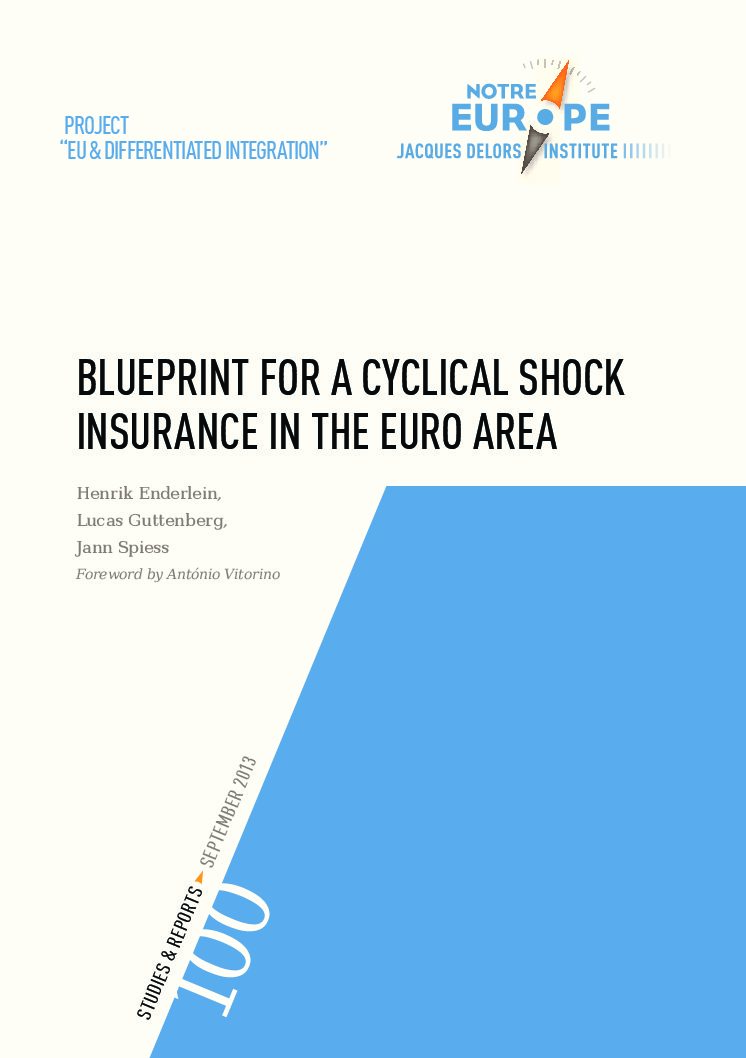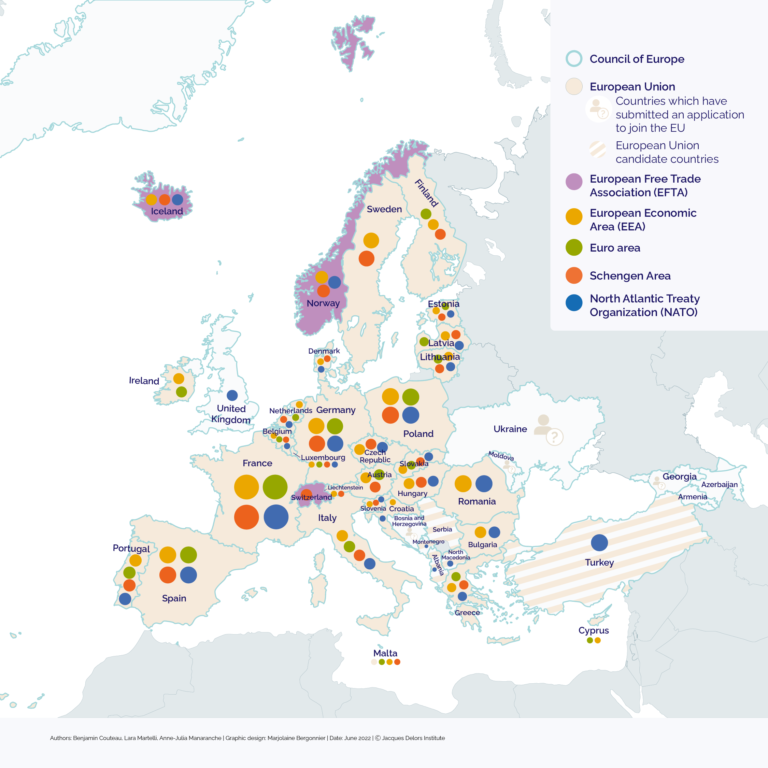Report
Blueprint for a Cyclical Shock Insurance in the euro area
This study by H. Enderlein, L. Guttenberg and J. Spiess presents how a cyclical stabilization insurance fund, as it was proposed in the Padoa-Schioppa report, could be a solution to the problem of lacking business cycle convergence in the euro area.
Many positive steps have been made in the last four years so as to reinforce the Economic and Monetary Union’s architecture. Nevertheless, the common currency area appears still incomplete, and several EMU weaknesses put in evidence by the crisis were not addressed yet. Beyond the short term challenges, such as achieving better public and private debt positions, more growth and lower unemployment, decision makers also need to complete the EMU in order to guarantee the long term sustainability of the common currency.
In this study, Henrik Enderlein, Lucas Guttenberg and Jann Spiess outline the technical features of the proposed “Cyclical Shock Insurance” scheme as well as its economic and political implications. The authors also contrast their proposal with some other proposals that are currently discussed to tackle the issue of business cycle convergence, such as an unemployment insurance scheme. Finally, the authors run a simulation on how this scheme would have operated had it been in place during the first fifteen years of EMU and show it would not have generated unbalanced transfers between member states.
SUR LE MÊME THÈME
ON THE SAME THEME
PUBLICATIONS
The war in Ukraine:
what are the consequences for European organisations?

After Brexit, euro-denominated derivatives transactions should leave the City

The Euro as seen by citizens who do not yet have it

MÉDIAS
MEDIAS
Marine Le Pen might be about to wreck the eurozone

L’Irlandais Paschal Donohoe reconduit à la présidence de l’Eurogroupe

Il y a vingt ans, l’arrivée des premiers euros

« L’hétérogénéité croissante de la zone euro menace sa cohésion »

Pourquoi la sortie de l’euro n’est plus un slogan politique

Andreas Eisl: «Les euros ont permis de comparer les pouvoirs d’achat»

L’impression tenace de s’être fait berner sur les prix avec l’euro

Two decades on, euro can’t shake reputation as price driver

L’euro, une construction encore inachevée

L’euro, une construction encore inachevée

Il faut “retrouver une courbe des taux qui permet de ‘pricer’ l’avenir”

The Brussels Briefing of the Financial Times has taken a look at some of our ideas for the new European Commission

Eulalia Rubio on European economic governance on RTVE

Mario Draghi on the single market and the eurozone : preaching in the desert

Mario Draghi calls for euro area fiscal instrument to fight crises.

Mario Draghi : “The most important area where Europe can contribute positively to growth remains the single market.”

The Euro Area reform – Enrico Letta in El Diaro

The eurozone reform and what the EU can do better – E. Letta in The Federalist

A budget for the euro area ? – Eulalia Rubio in La Croix

Enrico Letta in BergamoNews about the euro crisis and the migratory phenomenon

Pascal Lamy in La Dépêche: “Il faut intégrer davantage la zone euro”

Yves Bertoncini on France Info: Où en est vraiment l’europhophie en Allemagne, PaysBas et Hongrie ?

Enrico Letta in Forces Magazine: “Pour une Europe renouvelée”

Enrico Letta on Public Sénat : Euro, terrorism, migrants, Brexit

Enrico Letta in Challenges about the state of the European Union

Our report “Repair and prepare: growth and the euro after Brexit” in Géopolis

Our report “Repair and prepare: growth and the euro after Brexit” in Financial Times

Pascal Lamy on Le Parisien Magazine: “Faut-il sauver la peau de l’euro ?”

Our report “Repair and prepare: growth and the euro after Brexit” in Les Echos

Our report “Repair and prepare: growth and the euro after Brexit” in Deutsche Welle

Our report “Repair and prepare: growth and the euro after Brexit” in Il Sole 24 Ore

Our report “Repair and prepare: growth and the euro after Brexit” in Reuters

Antonio Vitorino on Observador : Socialistas em busca de nova “arma secreta” para o combate à desigualdade













































